Series - Five Volumes of Spiritual Wisdom: The Wisdom of the Torah, The Wisdom of the Talmud, The Wisdom of the Koran, The Wisdom of Muhammad, and The Wisdom of Buddha
Here you can read online Series - Five Volumes of Spiritual Wisdom: The Wisdom of the Torah, The Wisdom of the Talmud, The Wisdom of the Koran, The Wisdom of Muhammad, and The Wisdom of Buddha full text of the book (entire story) in english for free. Download pdf and epub, get meaning, cover and reviews about this ebook. City: New York, year: 2012, publisher: Philosophical Library/Open Road; Open Road Integrated Media, genre: Science. Description of the work, (preface) as well as reviews are available. Best literature library LitArk.com created for fans of good reading and offers a wide selection of genres:
Romance novel
Science fiction
Adventure
Detective
Science
History
Home and family
Prose
Art
Politics
Computer
Non-fiction
Religion
Business
Children
Humor
Choose a favorite category and find really read worthwhile books. Enjoy immersion in the world of imagination, feel the emotions of the characters or learn something new for yourself, make an fascinating discovery.
- Book:Five Volumes of Spiritual Wisdom: The Wisdom of the Torah, The Wisdom of the Talmud, The Wisdom of the Koran, The Wisdom of Muhammad, and The Wisdom of Buddha
- Author:
- Publisher:Philosophical Library/Open Road; Open Road Integrated Media
- Genre:
- Year:2012
- City:New York
- Rating:5 / 5
- Favourites:Add to favourites
- Your mark:
Five Volumes of Spiritual Wisdom: The Wisdom of the Torah, The Wisdom of the Talmud, The Wisdom of the Koran, The Wisdom of Muhammad, and The Wisdom of Buddha: summary, description and annotation
We offer to read an annotation, description, summary or preface (depends on what the author of the book "Five Volumes of Spiritual Wisdom: The Wisdom of the Torah, The Wisdom of the Talmud, The Wisdom of the Koran, The Wisdom of Muhammad, and The Wisdom of Buddha" wrote himself). If you haven't found the necessary information about the book — write in the comments, we will try to find it.
The Wisdom of the Torahis an instruction in the central beliefs of three world religions: Judaism, Christianity, and Islam. But by observing the Torah, or the Hebrew Bible, as a collected work of multiple authors spanning generations, the modern reader can look beyond its fundamental instruction. In these works, readers find many lyrical and timeless reflections on what it means to have faith and to be a member of the human race.
The Wisdom of the Talmudpresents a thorough history and overview of the Talmud, the rabbinical commentary on the Torah that was developed in the Jewish academies of Palestine and Babylonia. From mans purpose and miracles to marriage and wellness to consciousness and community, the Talmud considers what it means to practice faith on a daily basis and through a changing world.
InThe Wisdom of the Koran, readers will discover a selection of key chapters such as The Night Journey and The Cave, footnotes to convey context and meaning, as well as several stories from Judeo-Christian history. This invaluable anthology is an excellent step toward greater understanding of one of the finest pieces of Arabic prose and the Muslim faith.
The Wisdom of Muhammadis essential reading for anyone who wants to have a true understanding of Islam, and offers a compelling examination of the life and sayings of the Prophet. Covering a diverse range of topics, from marriage and civic charity to the individuals relationship to God and the afterlife, the Prophets words dispel misconceptions about the history of the faith, its leader, and its core beliefs.
The Wisdom of Buddha, drawn from the sacred books of Buddhism, reveals the insights and beliefs at the heart of the worlds fourth-largest religion. Covering the birth and death of the Buddha, as well as the major tenets of Buddhism, this collection offers a profound view of the Buddhist religion and its founder. These five volumes from Philosophical Librarys groundbreaking Wisdom series are available in one volume for the first time.
Series: author's other books
Who wrote Five Volumes of Spiritual Wisdom: The Wisdom of the Torah, The Wisdom of the Talmud, The Wisdom of the Koran, The Wisdom of Muhammad, and The Wisdom of Buddha? Find out the surname, the name of the author of the book and a list of all author's works by series.

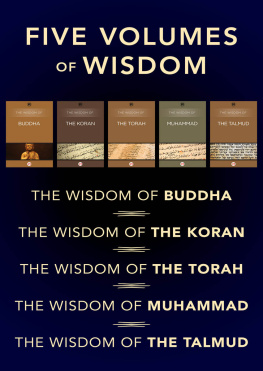
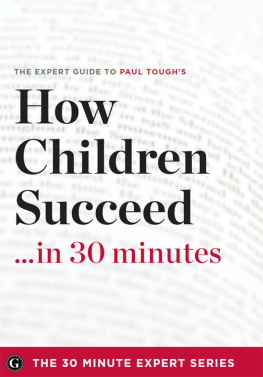


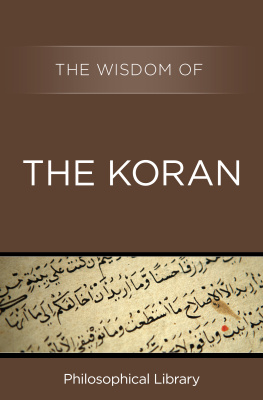
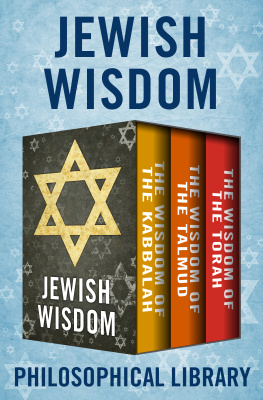
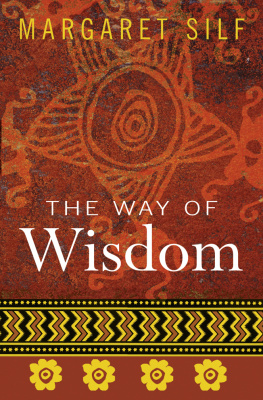

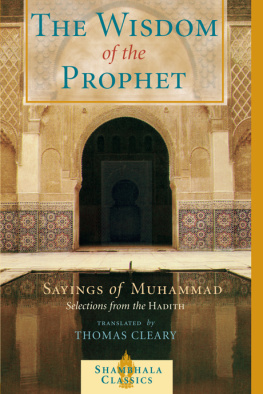
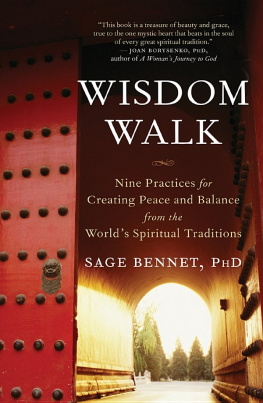
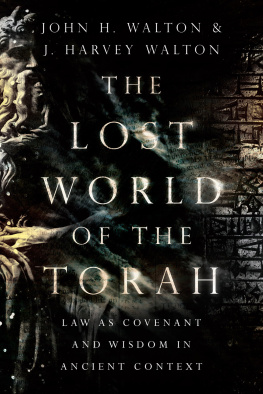
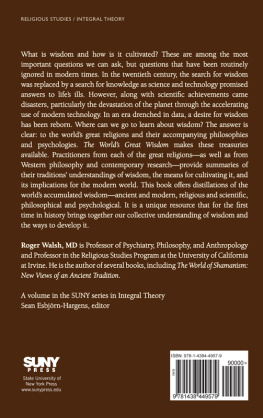
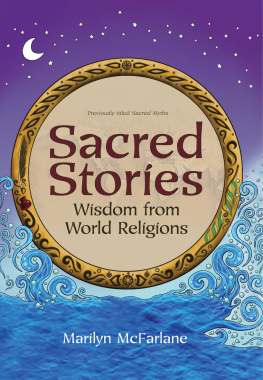
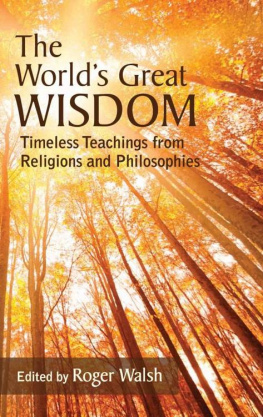




 Hoshea (Hosea)
Hoshea (Hosea)